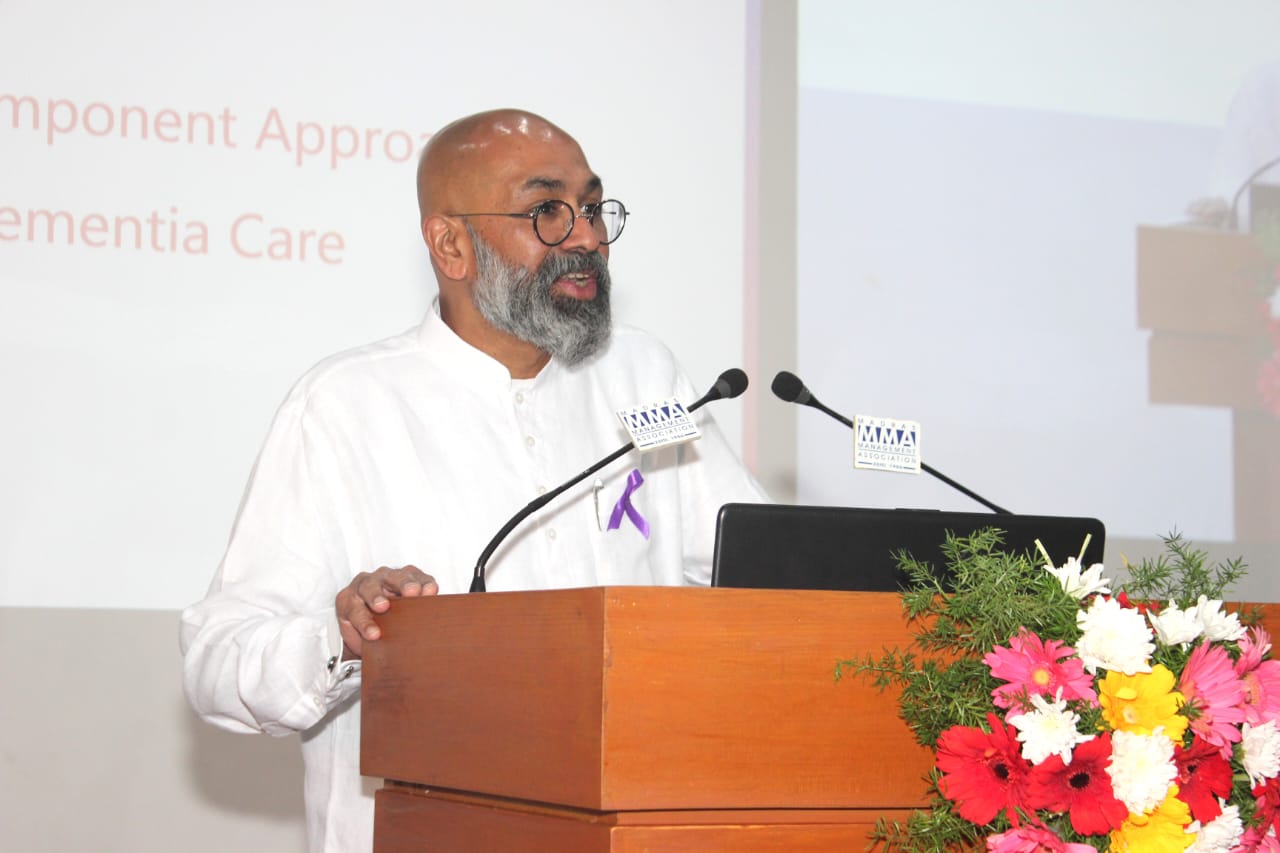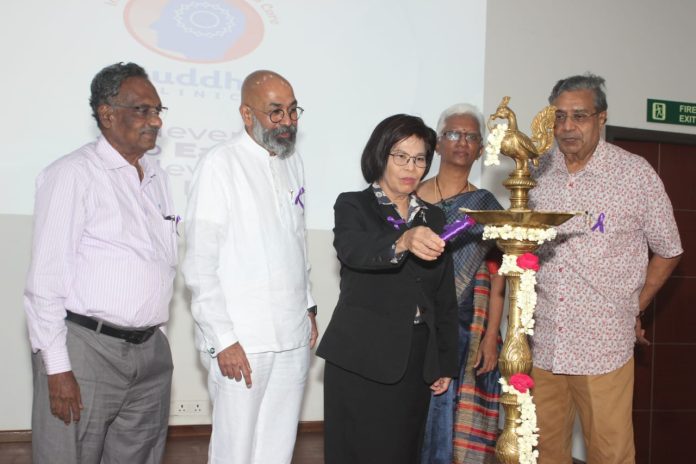Alzheimer’s Disease: Never too Early, Never Too Late!
This year, 2023, World Alzheimer’s Day theme is “Never too early, never too late”, which underlines not only the pivotal role of Alzheimer’s disease risk factors identification but also the espousement of proactive risk reduction measures to hamper, and if possible, prevent the onset of dementia.
Prevention is better than cure goes the old adage. A healthy lifestyle, good diet and sleep regimen with mental activity , exercise and socialisation is good for all people as they age. Early diagnosis is accomplished by taking a simple memory test (see below) administered by a psychologist or doctor. If in doubt one should do this immediately. If the test validates the dementia possibility then a detailed evaluation for treatable causes as well as treatment with drugs and non-drug interventions as detailed herein is important. Hence the message on World Alzheimer’s Day 2023, never too early!
Once a progressive dementia has set in, both patients and their families tend to stop exploring treatment options and conclude nothing can be done. Often this impression of “nothing can be done” sets in for both family and patient. Drug developments in the last 20 years have been disappointing with only modest effects in terms of delaying or slowing down disease progression having been achieved. The real breakthroughs in dementia care and research, apart from the new drugs, adecanumab and ledecanumab, the latter being more promising, come from non-invasive brain stimulation and a range of non-pharmacological therapies. Thus the message on World Alzheimer’s Day 2023, never too late!
At Buddhi Clinic..
As pioneers and innovators in neuropsychiatry and integrative medicine, Buddhi Clinic today offers a range of treatments for brain, mind and body- 18 in total, 7 of which are new neurotechnologies. Many of these hold great promise as non-pharmacological approaches to dementia care. In focus in our expo are…
TES- transcranial electrical stimulation incorporating “direct current” – tDCS, “alternating current” – tACS, and “random noise” tRNS. For dementia care we offer both “mood and behaviour management” protocols and “cognitive enhancement” protocols, the latter being combined with normobaric oxygen another proven treatment
rTMS- repetitive Transcranial Magnetic Stimulation, which also has protocols for attention and cognitive enhancement and indeed for behavioural dysfunction – depression, anxiety, psychotic symptoms, aggression, obsessive compulsive behaviours, all of which can manifest as part of the behavioural and psychological symptoms (BPS) of dementia. For Alzheimer’s Diseases, rTMS protocol targeting the Precuneus, shown a novel treatment methods as this region is an essential part of a functional brain system known as the default mode network. The precuneus is known to be involved in the earliest pathological changes associated with AD.
tA-VNS- Transcutaneous Auricular Vagus Nerve Stimulation, a treatment that holds great promise for epilepsy, migraine, cluster headache and dysautonomia (often part of post-Covid neurocognitive dysfunction, a form of reversible dementia) and various mind-body impairments classified as psychosomatic, including gut-brain health.
FMS- Functional (peripheral) Magnetic Stimulation an advanced treatment for pain syndromes, Spinal Cord Injury, Spasticity (post-stroke, with Parkinson’s disease and traumatic brain injury), bone, joint and muscle related pains; also a treatment for neurogenic bladder leading to incontinence. FMS addresses many of the elder co-morbidities that people with dementia suffer with.
qEEG Neurofeedback- An advanced technology that enables improvement in attention, memory and reduction in anxiety, aggression, obsessive and addictive behaviours, by engaging the patient in focussed activity that is guided by the patient’s own brain activity as measured in the qEEG. Our 4 channel device have up to 34 different task and activities for 12 protocols.






